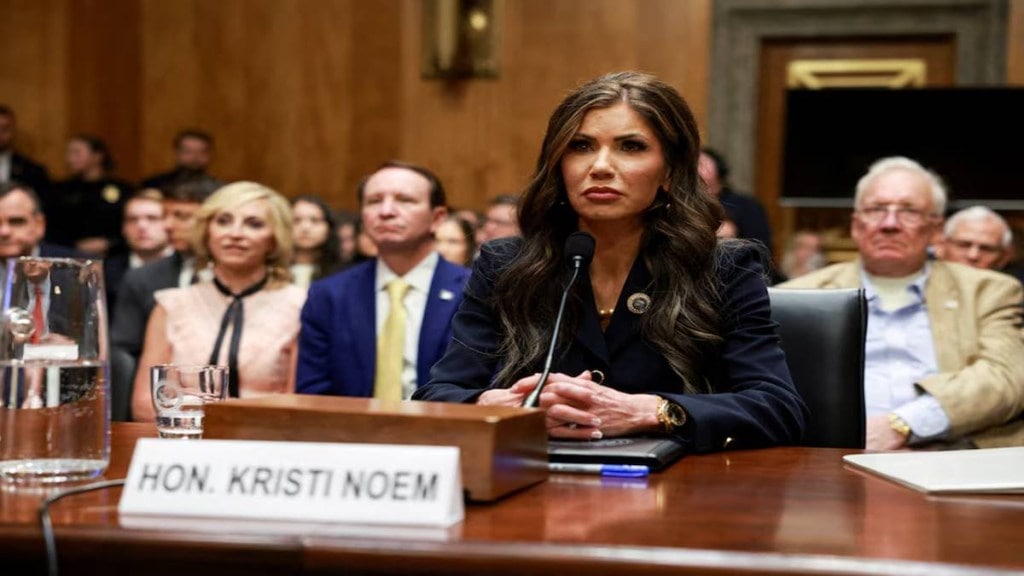The US Senate has officially confirmed Kristi Noem as President Donald Trump’s Secretary of Homeland Security. The decision was finalized on Saturday, placing a supporter of Trump’s immigration policies in a major role as the administration intensifies its efforts to address illegal immigration. Noem, who has been former Governor of South Dakota, shares Trump’s firm stance on immigration, and has termed illegal immigration as an ‘’invasion’’ during her confirmation hearing that took place last month. Her confirmation received a 59-34 vote in the Senate, further strengthening the Republican-led government’s focus on immigration implementation.
Noem’s role as Homeland Secretary
As the Homeland Secretary, Noem will be heading the US Department of Homeland Security which has around 260,000 personnel. The department is responsible for handling immigration enforcement, border security, cybersecurity, emergency response, the Secret Service, and the US Coast Guard. Noem’s new role will be crucial in carrying out Trump’s executive orders to enhance border security and speed up deportations.
Despite serving as the governor of an adjacent state at the Canadian border, Noem garnered attention for her active role in border security services. She positioned South Dakota National Guard troops to support Texas in securing its southern border, a decision that ignited controversy in 2021 after being funded by a Republican billionaire. Noem described the US-Mexico border as a ‘’war zone’’, displaying her alignment with the administration’s hardline stance.
During her hearing, Noem was asked questions related to the administration’s approach to undocumented agricultural workers. She stated that the focus would remain on deporting criminal offenders and criminal offenders and those who have final deportation orders. Noem didn’t state anything extending assurances for workers who don’t have legal status.
As per government records, Noem’s family farm has utilized temporary agricultural workers under the US guest visa program since 2015. Critics believe that such programs can undermine wages and discourage innovation in the agriculture sector, pointing out a potential conflict in Noem’s advancement toward labor policy and immigration policy.
(With inputs from Reuters)

